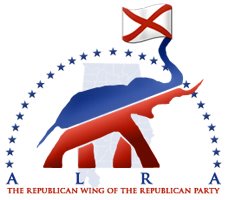Friends,
I found this going through some old papers...
1999
Hold on to your Wallet!
The U.S. Taxpayer Copes With “Fuzzy English”
By Matthew Chancey
There have been several new words tossed around in Washington, D.C., in recent years that warrant a proper definition and consequent warning to the U.S. taxpayer.
Most Americans believe that politicians lie. But what might surprise some folks is that most politicians don’t lie; they simply don’t use the same vocabulary as 99.9% of their constituents. Call it “fuzzy English,” if you will. Politicians love to twist the meaning of words so that no matter what they say, their statements will tickle the ears of any audience—regardless of the hearers’ political opinions. In one sense, this little game of semantical gymnastics is lying, because its underlying purpose is to deceive people on the true meaning of a politician’s words. But as far as making the statement, “Read my lips…” most politicians are not that daring.
Republicans and Democrats alike engage in this “fuzzy English,” although they might at times use a different dialect. The following are examples and definitions of several words and phrases commonly used by politicians:
“Compassionate”— When a conservative politician says he’s “compassionate,” this does not mean he has a personal soft spot for spotted owls. It means that he is going to spend your money for spotted owl preservation. A “compassionate conservative” is usually a socialist-lite who has no desire to eliminate social welfare programs, but wants to use them to promote certain conservative “ideals”.
“Local Control”— When a politician in Washington says he is supportive of “local control” for X, it does not necessarily mean he supports the elimination of any federal department or program. He simply means that he will keep the federal program, but allow states and communities to have more input over how the money is spent. This view holds that too much red tape—not the federal government—is the problem. These politicians do not subscribe to the view articulated by Sen. Eugene McCarthy, who said that “an efficient bureaucracy is the greatest threat to liberty.”
“Responsible”— In politics, the word “responsible” means “more.” To call for “responsible” gun laws means to call for more gun control. To call for “responsible” banking laws, means to call for more banking regulations. Under no circumstances does “responsible” mean “more efficient.”
“Affordable”— When a politician says he wants to make X more “affordable,” he means he wants the government to subsidize it in some form or fashion. It never means that federal regulations or meddling will be reduced or eliminated to lower prices.
“Investment”— A very popular word among liberal politicians. A call for more “investment” in, say, education is not an encouragement for taxpayers to take out an education IRA for their grandchildren. It means that the government must spend more on education. Note: this word never refers to private investments of any kind.
“Reform”— When a politician says he will fight for “X Reform,” it means that more money will be spent on X and more regulations will be enacted no matter what type of legislation is proposed. “Reform” is never equated with “elimination” in Washington.
“Partnership”— When a politician says he wants to form a “partnership” between the government and X, he is saying that he wants the government to control X in some manner. It does not mean that he wants to assist X or share input with X.
“Reasonable” and "Common Sense"
If a politician says he favors “reasonable” this or “common sense" that, it is almost always used to modify the words “regulations” or “restrictions.” A politician uses the words “reasonable” and “common sense” to make anyone who dares to oppose him seem “un”-reasonable and “lacking” in common sense.
“Fair”— Another favorite of all politicians. “Fair” is usually used in the context of what a politician thinks you deserve. For instance, the rich are taxed more than the poor because it’s “fair.” Taxpayer-funded education loans are given to poor students because it’s “fair.” Certain minorities get special hiring privileges because it’s “fair.” Under no circumstances does “fair” mean “just” in politics.
“Surplus”— In the corporate world, if an employee takes more money from his employer than is stated in his contract, we call it “embezzlement.” In Washington, it’s called “surplus.”
This is just a sampling of the “fuzzy English” you will hear in our nation’s capital.
For those finding the above confusing or hard to follow, the best advice this writer can give is to hide your kids, plug your ears, and hold on to your wallets when
a politician opens his mouth.
Wednesday, February 13, 2008
Subscribe to:
Post Comments (Atom)

No comments:
Post a Comment